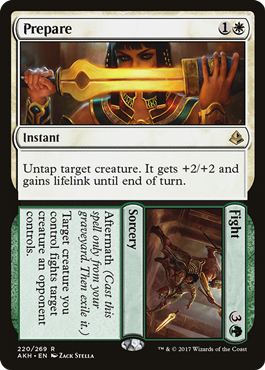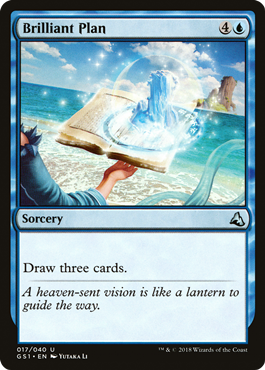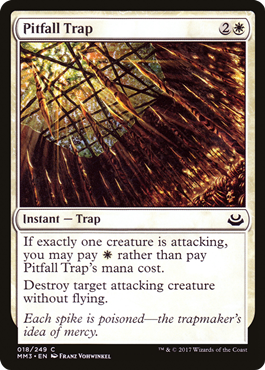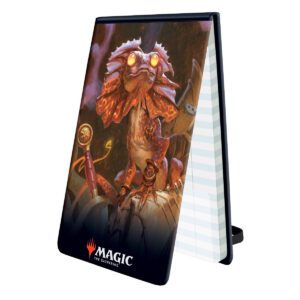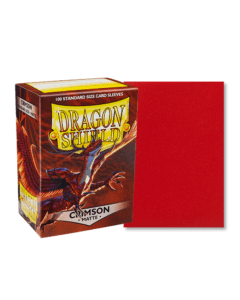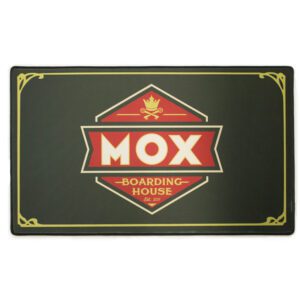With Regional Championship Qualifier Season in full swing, many folks will be returning to competitive paper Magic after a long hiatus. However, for some players, this will be their first foray into organized play. We recently covered what you should bring to a CommandFest, and while a lot of that information will transfer well to preparing for an RCQ, competitive events are different than casual ones.
I learned these tips about the more technical aspects of competitive play throughout my ten years of experience — which include some decent finishes at various Grand Prixs, back when they were still a thing. In addition, I was a Level 2 Judge and the Tournament Organizer for the Seattle Mox Boarding House for several years.
During that time, we ran Preliminary Pro Tour Qualifiers (the closest equivalent to the RCQs) every competitive season, and at least two Competitive Rules Enforcement Level events per month. In other words, I have experience with these events not only as a player, but also as a Floor Judge, Head Judge, Scorekeeper, Tournament Organizer and store staff at this level of event. So, this list will both prepare you for the event and get you on the nice list of everyone involved.
Comp REL
Before getting into the list, it’s important to understand how events like RCQs differ from casual Magic. Most of those changes come from the event’s rules enforcement level.
There are three different levels of rules enforcement for Magic: Regular, Competitive and Professional. Regular covers events like Friday Night Magic, and it’s intended for more casual atmospheres. There are no real penalties for getting the rules wrong (as long as you aren’t actively cheating or doing anything that would otherwise be an immediate disqualification), and when problems do arise, the fixes are geared toward getting things back on track as quick as possible. If you want more specifics about what Regular entails, the Judging at Regular document (or JAR) is a handy reference.
Competitive covers RCQs and other major events. Here, there are penalties for getting the rules wrong, and you can start getting game losses if you make too many mistakes. The goal here is to ensure fair, rigorous, by-the-book play. When something goes awry, the prescribed fixes often include giving the offending player a small disadvantage – losing a card from their hand, not getting the effect of a missed trigger and so on.
Professional is reserved for the highest level of play, Pro Tours and Worlds-level tournaments. Players at these events are expected to know the workings of tournaments inside and out, and the penalties are harsher and stricter when mistakes are made.
All of this can sound daunting if you’re used to casual play, but don’t worry. With a little practice, sticking to Competitive REL can become second nature. Plus, getting used to playing under Comp REL can also make you a better Magic player, overall.
Common Comp REL pitfalls
Most of the penalties you can face at Comp REL have to do with violating the rules of playing the game in some way. Note that all of these assume there’s no malicious intent behind the infraction. If there is malicious intent, that’s cheating and it becomes a much bigger problem. Here’s what more standard penalties look like:
Game Rule Violation: Doing something wrong, like casting a spell for the wrong mana, attacking with a creature that shouldn’t be able to, trying to cast a sorcery as an instant — that sort of thing. If you do this, you get a warning. If you get too many warnings, you start getting game losses.
Missed Trigger: You are responsible for your own triggers at Comp REL. If you miss a beneficial trigger, that’s pretty much all that happens — you’ve missed the trigger and don’t get the benefit. If you miss detrimental triggers, that’s a warning, and the trigger gets put on the stack if at all possible in the current state of the game.
Looking at Extra Cards: This one is pretty self-explanatory — you looked at cards you weren’t supposed to. You get a warning and the excess cards get put in their correct zone.
Failure to Maintain Game State: Is your opponent not doing something correctly? It’s your job to call a judge and get things fixed. If you don’t, you could get a warning for Failure to Maintain Game State. This one tends to feel the harshest, but it’s there to keep more experienced players from taking advantage of less experienced players’ rules mistakes.
Hidden Card Error: Pretty much anything that involves a card only known to one player. So drawing extra cards, scrying improperly, forgetting to reveal a face-down morph card at the end of a game….yeah, anything with hidden information. Warnings abound!
Mulligan Procedure Error: You mess up mulliganing, like forgetting to put a card back on the bottom of the library after mulliganing once. Warning!
All of the above tend to make some amount of intuitive sense — something, somewhere has gone wrong with the game. However, there is another category of penalties that have to do with the tournament itself. While many of these penalties make sense intuitively, too, knowing about them in the first place is a good way to avoid incurring them:
Tardiness: You’re late to the start of the match. This is an automatic game loss, upgraded to a match loss if you’re late enough.
Outside Assistance: This is a big one, as you get an immediate match loss for it. This is also one of the only infractions you can get dinged for while spectating another match. If you ask, seek out or give any kind of advice once you or another player is seated for a match, you’ve committed an outside assistance violation. Anything from asking a friend what they would do to referring to notes you’d previously written down during a game counts, so err on the side of caution here.
Slow Play: Magic matches, at any level, are timed. And once you get to Comp REL, if you aren’t respecting the clock, you can get a warning for it. You only get one warning for this before judges upgrade the penalty to a game loss, so do your best to keep the game moving.
Decklist Problem: Your decklist doesn’t match your deck. You get a game loss for this one, so make sure you write things down correctly.
Deck Problem: Basically the same as the last one from the other direction – you wrote things down correctly, but your deck is wrong. Maybe you left a card at home, forgot to de-sideboard, accidentally shuffled an opponent’s card into your deck — all of these will get you a game loss.
Limited Procedure Violation: You mess up during a draft, you get a warning. Pass a pack the wrong way, take too long to make a selection, try to change your mind after you’ve placed a selection on your pile of selected cards: all of these are no-no’s.
Communication Policy Violation: You accidentally misrepresent the game in some way. An opponent asks how many cards you have in hand and you say the wrong number, you accidentally put a creature in with your lands in a way that obscures it, forget to have your opponent search up a land when you Path to Exile their creature — all are warning-worthy violations.
Marked Cards: If you do this on purpose, it’s cheating. This covers inadvertent markings like your sleeves are scuffed in a non-uniform way, a set of foils are noticeable through the sleeves or an altered card is noticeably thicker than the other cards. Get your alters approved by the Head Judge before the start of the tournament, get fresh sleeves and avoid a warning.
Insufficient Shuffling: Decks are supposed to be random, and if you don’t randomize it enough, you’ll get a warning and be told to shuffle more thoroughly.
There is another category of penalties beyond these, but those involve how to deal with outright cheating, bribery and wagering, aggressive or harassing behavior — that sort of thing. I’m not going to go over all that individually, but, you know, be nice to everyone. The only thing I’ll call out here is Improperly Determining a Winner – you must play Magic, agree on a draw, or someone must voluntarily concede to determine the outcome of the match.
If you want to know more of the specifics of penalties, how they are applied and when, check out the Infraction Procedure Guide.
Mechanical precision
Practice may not make you perfect, but it can definitely help you stick to the rules. This may seem simple, but just play with your deck every chance you get. Even just gold fishing (playing out a one-sided game by yourself) can be immensely useful at learning the ins and outs of how your deck actually functions. Having that experience is important going into a Comp REL tournament.
Aside from straight up giving you a better chance of doing well, you need to know where all the triggers are, what all the intricate little rules interactions involve and understand all the different lines of play available to you. The more mechanically assured you are with the deck, the less likely you are to make simple mistakes or miss anything.
This can even reach the level of muscle memory. Say you run Collected Company in your Pioneer deck. The more you get used to looking at the top six cards of your deck, the less likely you are to accidentally grab the seventh card or flip over the next card of your deck. It sounds silly, but those mistakes can be costly when penalties get involved.
Learning to shuffle smoothly so you don’t split sleeves, knowing how to sideboarding quickly and de-sideboarding after each match, getting used to taking notes and writing life totals — all of these little skills that seem secondary to Magic itself combine to let you play the game without involving judges. The less you have to think about any of these things, the more you can just focus on the game.
Things to bring
Lifepad/paper
This is absolutely essential. Do not use a spindown, other dice or anything that doesn’t leave a record of the game’s progress to track life totals. Again, DO NOT USE SPINDOWNS.
If there is ever a dispute about life totals, having a running record of what happened in the game is paramount. If only one player has a record of what’s been happening, any judge must use that by default to make decisions on how to proceed.
But even beyond life totals, having something to take notes on is extremely helpful. Writing down the contents of your opponents’ hand, keeping track of what’s been named by a Pithing Needle or noting any oddball cards to keep in mind when side boarding are all good opportunities to take notes.
However, remember, you can’t refer to outside notes during a game. Before decks are presented or while side boarding, you can refer to anything you have on you — but once the game starts, you can only look at notes you’ve taken during that game.
Sleeves
You’ll want fresh sleeves before any Comp REL tournament for several reasons. First, fresh sleeves are less likely to split. A split sleeve isn’t the end of the world, and you won’t get dinged in most cases for having that happen, but fixing it can cost you valuable time mid-game and it can definitely ruin your focus.
The other big reason for having fresh sleeves is that if you are using old, dinged up sleeves, you can actually be penalized for having marked cards. You might not have them marked in any purposeful way, but if only three cards in your deck have a sleeve with a slightly bent corner, that’s a big red flag for any judge. Spare yourself the headache and get fresh sleeves.
Playmat
Having a playmat does mostly come down to ease of use. They help keep your sleeves clean, make picking up and rearranging cards much smoother and clearly delineate your play space. You don’t need anything fancy here, and you can technically get away without using one, but it’s worth it in the end.
Tokens, dice and counters
While you should never use dice to keep track of life totals, having dice or counters of some kind around is a good idea. You must clearly represent your board state at all times, including +1/+1 counters, -1/-1 counters and anything else that might need representing.
See how I said “clearly” up there? Don’t use those dice or counters to represent tokens if you can avoid it at all. Get the correct tokens for your deck, or get some dry-erase tokens that can be used over and over again. You can use dice to represent the number of a given type of token, but it’s key to have something that clearly labels a token.
Decklist
You’ll be required to submit a decklist in one form or another before the tournament starts, but what I’m suggesting here is that you have a copy of your decklist to keep for yourself. This can be a piece of paper, an image on your phone, a link to a deck building site — anything that gives you an accurate inventory of your cards.
Why do you need this? Well, need might be a strong word, but having it never hurts. It helps you keep track of your cards and can also help you de-sideboard after a match.
Food and drink
Bring a water bottle and whatever kind of snack is acceptable in the venue you’re playing at or purchase something there. Comp REL tournaments generally last a lot longer than Regular REL events, and if you want to be on your A-game, you need to keep your energy up. If your LGS offers food and drink there, consider supporting them where possible, but bringing your own (as allowed) is never a bad idea.
End step
If you want a complete rundown of the rules of a Comp REL tournament, there’s always the Magic Tournament Rules document, but honestly, it’s a little dry. Just remember that while you should still aim to have fun, Comp REL means you must also play with a little more technical accuracy than usually required.
Just keep the advice here in mind, hold onto a positive outlook, remember to hydrate and you’ll be fine. I’m heading to my first Comp REL tournament in a few years shortly and I can’t wait. I’ll probably write about the experience, so stay tuned. Until then, happy playing!

Chris is the Marketing Communications Coordinator (and editor of the blog) at Card Kingdom. He would like to apologize to his son for not holding onto more cards from when he first started playing, as that likely would have paid for college. He enjoys pretty much all formats of Magic, but usually ends up playing decks that make other people dislike playing those formats with him.


